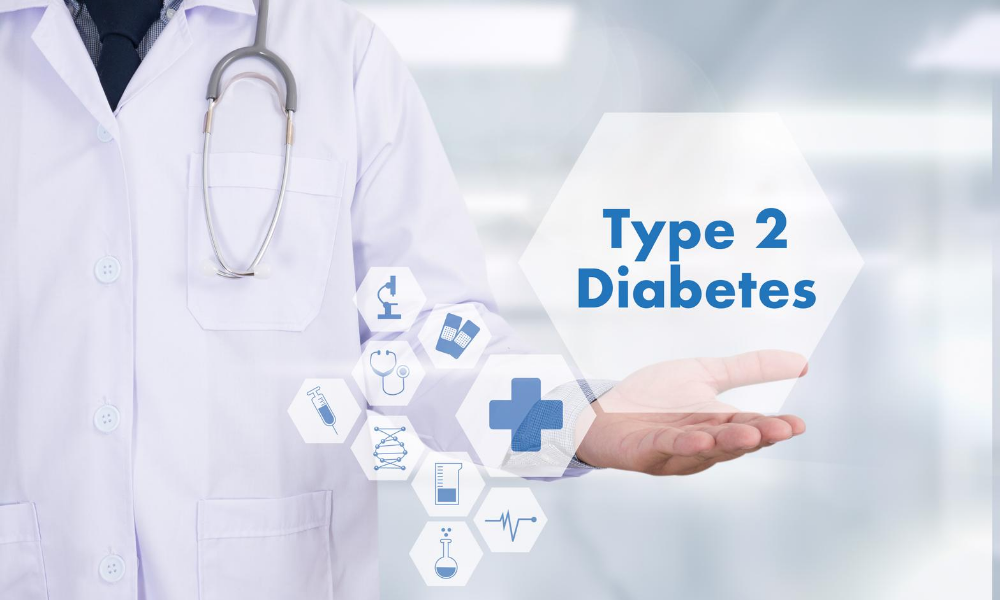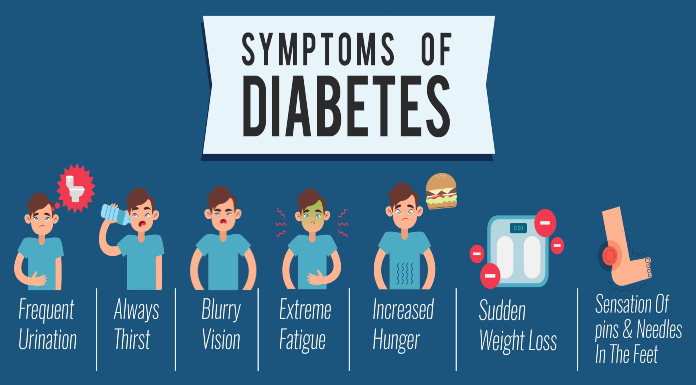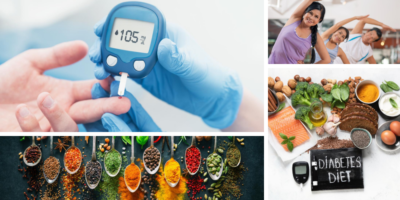Do you know? It is estimated that by 2030, the whole world will have more than 500 million people with diabetes. Diabetes, especially type 2 diabetes, is the most common cause of blindness, hemodialysis, and limb necrosis. At the same time, cardiovascular events such as myocardial infarction, diabetes-induced stroke are also the leading causes of death. Not only that, but the disease is also becoming a health burden in middle to low-income countries, or even in developed countries. Let’s find out this disease through the article below.


1. What is Diabetes?
✅Diabetes occurs when the body loses its ability to produce insulin hormones or improper use of insulin. Insulin is a hormone secreted by pancreatic cells in the pancreas. They metabolize carbohydrates in the body and insulin is also the only agent in the body that can lower blood glucose levels. Diabetics will have blood sugar levels higher than normal. This disease can cause many dangerous complications in other organs of the body such as the heart, nerves, kidneys, eyes, etc.
2. Three types of Diabetes
2.1 Type 1 diabetes


✅Type 1 diabetes occurs when the body’s immune system instead of attacking external factors, attacks the pancreas cells. This is the main reason leading to increased blood sugar and insulin deficiency. People with type 1 diabetes are more likely to be young or adolescent.
2.2 Type 2 diabetes


✅Type 2 diabetes is the most common type of diabetes (accounting for 90-95% of diabetics). In type 2 diabetes, some cases are caused by a decrease in the amount of insulin secreted and there is also a case of impaired insulin quality (that is, insulin resistance cells). This process will cause sugar to build up in your blood instead of moving into the cells to create energy for the body. Subjects with type 2 diabetes are mostly adults, more common in obese and overweight people.
2.3 Gestational diabetes


✅ Gestational diabetes only occurs in pregnant women, often disappearing after labor. However, if not treated early, it can cause some serious problems for both mother and baby.
3. Common causes
3.1 Causes of type 1 diabetes
✅ According to experts, there is no exact cause of type 1 diabetes. However, a combination of genetic and environmental factors may be the cause. The following subjects are at high risk for type 1 diabetes:
- In families with siblings or mothers with type 1 diabetes.
- The subject is exposed to some viruses that cause disease.
- The body seems to have antibodies to diabetes.
3.2 Causes of type 2 diabetes
✅ Experts have not determined the exact cause of type 2 diabetes but there is a close relationship between obese people and this type of disease. However, this does not mean that people who are obese have type 2 diabetes. Here are some causes of type 2 diabetes to keep in mind:
- Genetics: Many studies have confirmed that diabetes has a very high genetic ability. If your father or mother has diabetes, your risk is up to 15%, and if both your mother and father have diabetes, this is up to 75%. Therefore, if you have a family member with diabetes, you should keep a reasonable nutritional habit, regular exercise, and regular health checkups to have effective prevention methods.
- Inflammatory pancreas: The pancreas is the production site of insulin – the hormone that helps regulate the amount and metabolism of carbohydrates in the body. However, due to external influences such as bacterial contamination, fast foods, environmental toxicity (PM 3.5 dust particles), heavy use of contaminated food over a long period of time … the pancreas may be attacked by radicals free, toxins lead to inflammation and weakening. It will lose the ability to produce insulin, leading to type 2 diabetes.
- Obesity: Being overweight is the situation many people encounter due to being inactive and having excess calories. Not only make the body not beautiful, but obesity also causes the possibility of many dangerous conditions for the body such as fatty blood, heart disease, blood pressure, diabetes. The reason obesity is at risk of diabetes is that the calorie intake is so large that the pancreas produces more insulin than usual. Because insulin also works to convert fatty tissue and liver into ATP energy type to provide for the body’s activities. If this condition persists for a long time, the pancreas weakens and is unable to produce Insulin.
3.3 Causes of gestational diabetes
✅ The process of pregnancy will cause the mother’s body to increase insulin production to stabilize blood sugar levels. However, there are some cases where a pregnant mother cannot produce enough insulin on her own and lead to increased blood sugar. Those at risk for gestational diabetes are:
- Mother obese, overweight before and during pregnancy
- Pregnant after age 30.
- Have a history of diabetes in previous pregnancies
- Historical family history of type 2 diabetes.
4. Signs of diabetes


Patients with diabetes often have the following symptoms:
- Constantly thirsty: You are thirsty and drink plenty of water but the feeling of thirst persists. Why? That’s because when your blood sugar rises, your body automatically separates the water contained in the cells and pumps it directly into the bloodstream to dilute the excess sugar. The lack of water in the cells will stimulate the brain causing thirst without stopping.
- Urinating multiple times a day: If you urinate several times a day, you may have diabetes. This is because your body wants to eliminate excess sugar, the kidneys become stronger, so they urinate more.
- Unusual weight loss: Our body needs fuel to function, and the main fuel for the body is sugar (glucose). Diabetes makes it impossible for the body to convert energy from food, it is forced to draw energy from fat and the muscles, this will inevitably lead to weight loss.
- Hunger and fatigue: When your body is unable to absorb the amount of sugar needed in the blood to release energy, you will always have a need for food to get more energy to increase your body to compensate for energy. The intake is insufficient, leading to frequent hunger and fatigue.
- Susceptible to infections and fungal infections: High blood sugar causes the immune system (the body’s own defense mechanism) to be inhibited, reducing the body’s resistance, leading to infections and fungal infections.
- Weak vision: High blood sugar destroys capillaries in the fundus of the eye leading to bleeding, edema in the macula, which reduces vision even though you have not had eye problems before.






Leave a Reply